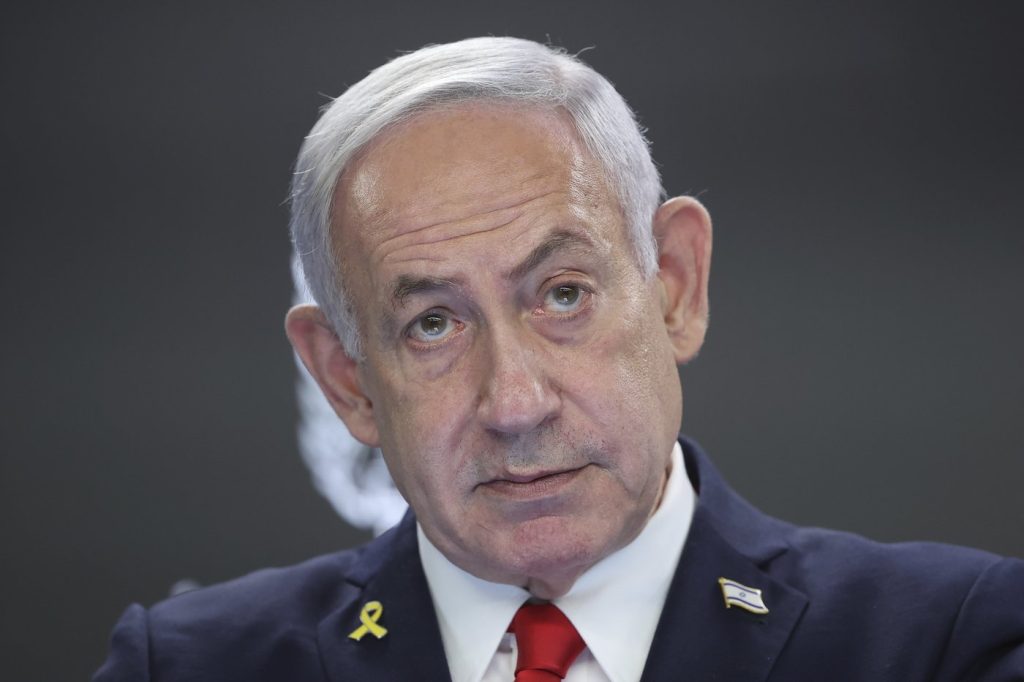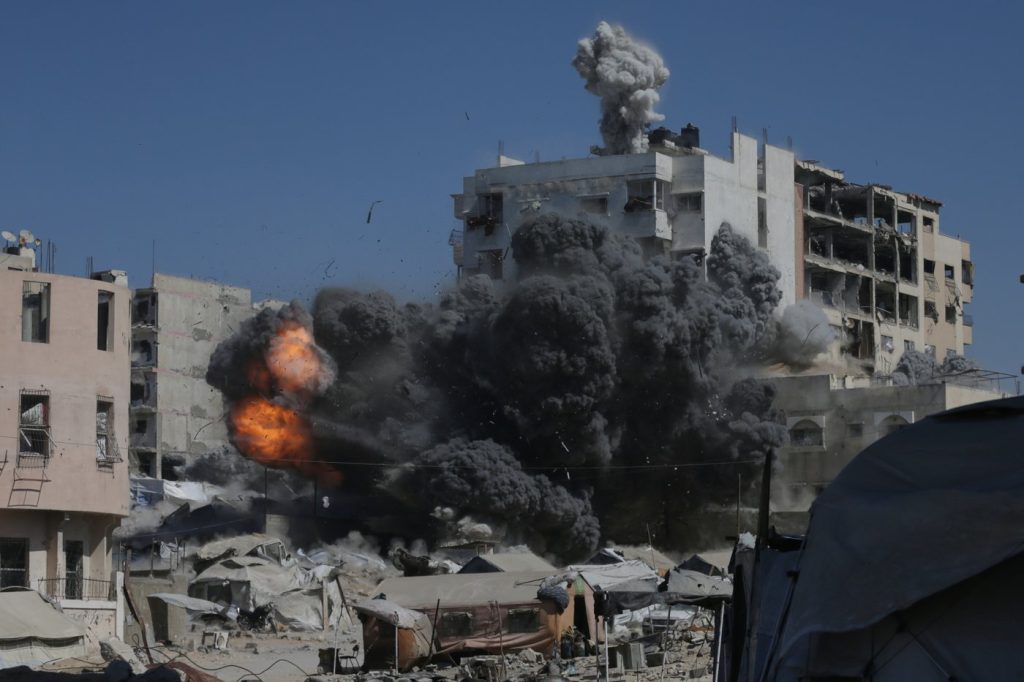JERUSALEM (AP) — Israeli Prime Minister Benjamin Netanyahu's decision to carry out an attempted assassination of Hamas leaders in Qatar has proven to be a risky move in his ongoing campaign against the militant group. The airstrike, which occurred this week, was intended to diminish Hamas's leadership in a bid for what Netanyahu described as "total victory" following their attack on Israel on October 7, 2023.
However, reports indicate that the mission may have failed, with Hamas asserting that its senior exiled leaders survived the strike. As a result, Netanyahu's global reputation, already tarnished by the humanitarian crises unfolding in Gaza, has taken another hit. In the aftermath of the strike, relations with Qatar, a key U.S. ally and mediator in the conflict, have soured, drawing widespread criticism throughout the Arab world and straining ties with the White House. This situation jeopardizes ongoing ceasefire negotiations, potentially affecting the 20 hostages believed to be alive in Gaza.
Despite this setback, there are no signs that Netanyahu intends to relent or halt the military operations. His hard-line coalition continues to support him, leaving his hold on power seemingly unchallenged. The airstrike, which resulted in the deaths of five low-level Hamas members and a Qatari security guard, was strategically significant for Netanyahu. Had it killed high-ranking Hamas officials, it could have allowed him to declare a symbolic victory.
Harel Chorev, an expert on Arab affairs at Tel Aviv University, noted that such an achievement would have provided Netanyahu an opportunity to assert that Hamas had been decisively weakened. Israel's intense offensive over the past 23 months has already eradicated much of Hamas's leadership within Gaza, but Netanyahu's aspirations for total victory seem increasingly elusive.
The far-right factions within Israel's governing coalition are demanding that Netanyahu intensify military actions in Gaza City. While many of the military leaders and the broader public express serious concerns regarding further military escalation, Netanyahu's coalition partners threaten to topple his government if he does not comply. The attempted assassination of Hamas leaders could have created a short-term solution to placate these hard-liners, although it also eliminated key negotiators who could have facilitated a ceasefire.
This strike marked a significant shift in Israel's approach, leading Chorev to argue that the attack symbolizes a decision to forgo negotiations with Qatar. Historically, Qatar has played a crucial role in mediating ceasefires, having facilitated two agreements that released numerous hostages in exchange for a significant number of Palestinian prisoners. Following the strike, Qatar's Prime Minister Sheikh Mohammed bin Abdulrahman Al Thani expressed skepticism about continuing ceasefire talks, although he did not completely dismiss ongoing mediation efforts.
Simultaneously, Netanyahu's actions have strained relations with the Biden administration, which has traditionally been a strong supporter of Israel. Former President Donald Trump reportedly expressed dissatisfaction with the airstrike, indicating that such an action would not be tolerated again. However, it remains unclear whether the U.S. will take any concrete steps to pressure Israel or impose consequences for its military actions.
Despite the international backlash, Netanyahu remains steadfast, issuing threats for continued strikes on Hamas leadership if Qatar persists in providing refuge to them. Israel's military campaign in Gaza is not slowing down, with calls for a complete evacuation of Gaza City as the Israeli forces prepare for an anticipated invasion.
The Israeli government's determination to continue the military operation comes amidst increasing requests from various international entities, including the United Nations and European Union, to halt hostilities. There is an atmosphere of urgency, as a growing number of countries aim to recognize a Palestinian state at the upcoming U.N. Security Council meeting.
If Hamas's leaders have indeed survived the airstrike and negotiations subsequently collapse, public dissent against Netanyahu may intensify. A significant portion of the Israeli population desires an end to the conflict and a pathway for hostage negotiations. However, experts suggest that Netanyahu's political survival currently hinges more on his coalition than on public opinion, which has remained largely unresponsive to widespread calls for de-escalation.
The emotional toll is especially pronounced among families of hostages in Gaza, with some expressing profound fear and frustration over the Israeli government's actions. Einav Zangauker, whose son is among the captives, conveyed her anguish over the relentless pursuit of military objectives at the potential cost of hostage negotiations, underscoring the personal ramifications of the conflict.












